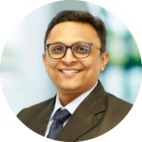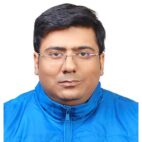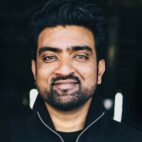20 Years of Technology Change
As SAP TechEd Turns 20, SAP Executives Weigh In on Technology Shifts Past, Present, and Future
1. What job did you hold in 1996, and with which company?
Björn Goerke: I joined SAP in 1996 after completing my computer science studies at the University of Karlsruhe in Germany. I immediately moved to SAP Labs, LLC in Silicon Valley to work on connecting SAP R/3 with this weird thing called “the web.”
Bernd Leukert: I started at SAP as a software developer for SAP R/3, and then took on responsibilities as project lead for international customer development projects.
2. What job (if any) would you like to have in 20 years?
Goerke: Astronaut.
Explore related questions
Leukert: Who knows what jobs we will see in 20 years? I think the pace of technological change I have experienced during my career is only a shadow of what we will see over the next 20 years.
This next wave of change will fundamentally reshape all of our careers. The “Future of Work” report from the World Economic Forum, for example, estimates that 65% of children going into primary schools now are likely to work in roles that currently don’t exist.1
3. What type of technology did you find most intriguing 20 years ago?
Goerke: Rockets.
Leukert: The internet. It still amazes me how the internet has revolutionized the computer and communications world like nothing before.
4. What technology do you find most fascinating today?
Goerke: Rockets (some people argue I should grow up).
Leukert: I believe one of the biggest disruptors today is artificial intelligence.
5. What is the biggest technological change we can expect to see in 20 years?
Goerke: Rockets. And increasingly, innovations in autonomous robots.
Leukert: Artificial intelligence, 3D printing, resource-efficient sustainable production, and robotics will further shape and change the ways we make, manage, and mend products and deliver services.
6. What kind of computer were you using in 1996?
Goerke: Some ugly PC with Windows NT at work, and an Apple Mac at home.
Leukert: I don’t remember exactly what kind of computer I was using, but I am sure it was state of the art for the 90s.
7. What kind of car were you driving in 1996?
Goerke: Alfa Romeo Spider. Why compromise?
Leukert: Alfa Romeo Spider.
8. Who was your biggest influence in 1996?
Goerke: As you grow older, three things happen: First, you lose your memory. And then — I can’t remember the other two.
Leukert: When SAP was founded in 1972, the idea of creating a corporate software company was unheard of. Our five founders refused to let that stop them: They set out on a path that transformed and continues to transform the world of information technology, and forever altered the way companies do business. Their spirit of innovation, entrepreneurship, and courage still influences me, as it did back in 1996.
9. How would you like to see SAP TechEd evolve in the next 20 years?
Goerke: Developers, developers, developers! SAP TechEd needs to continue to be a place where the most innovative developers can build their skillsets and introduce new ideas.
Leukert: I am looking forward to SAP TechEd always being on top of technology trends and significantly contributing to educating and engaging developers, engineers, and technologists. In 20 years, SAP TechEd has to be the event that developers in enterprise software attend.
10. What surprises you the most about how technology has changed in the last 20 years?
Goerke: What surprises me most is that almost all predictions of how the world, and technology in particular, would evolve fell short of reality.
Leukert: The speed in which things are evolving. Twenty years ago, who would have thought that in 2016, 150 million emails would be sent each minute and that the cloud would become the default consumption model for software?
SAP TechEd needs to continue to be a place where the most innovative developers can build their skillsets and introduce new ideas.
– Björn Goerke
11. What will be the most important technological skill in 20 years and how will it influence the future?
Goerke: Gee! I haven’t even made plans for holidays and you want to hear me predict the future?
Leukert: Data is the raw material for creating new business models that are able to drive the business to new heights. We see that the number of jobs related to big data is growing by the day, as more and more companies become aware of the benefits that data collection and analysis could have on their profitability. As such, I think transferring machine learning and artificial intelligence algorithms and linking them to business problems will be crucial going forward.
12. If you had the opportunity to introduce something from 2016 into the world in 1996, what would it be?
Goerke: Haven’t you seen the movie “Back to the Future”? Never change the past!
Leukert: Today’s streaming capabilities for audio and video.
13. Similarly, is there anything that was available in 1996 that you would like to still see today?
Goerke: The original Tamagotchi. I think it was the real origin of the modern smartphone. Except that it was so much cheaper and so much more fun.
Leukert: The golden goal rule in soccer.
14. What is SAP’s biggest success of the last 20 years?
Goerke: On the product side, it’s SAP HANA. But as a company overall, SAP’s biggest achievement is how it has turned from a Germany-based, ERP-only company into the leading global enterprise solution provider.
Leukert: Once in a while, you not only have the chance to reinvent your own business, but to reinvent a whole market — and we were lucky enough to do this many times. After revolutionizing the IT market with SAP R/3, we have reinvented our platform and have led the market to an in-memory-based platform where structured and unstructured data can be processed in one place. We redefined the core with SAP S/4HANA, we completely redefined customer relationship management, and we redefined the analytics business with the release of SAP BusinessObjects Cloud. And these are only some of our achievements.
In the future, success will not only be about qualifications, but also about the ability to be agile, to become an expert in design thinking, and to consider user experience as key.
– Bernd Leukert
15. What should a company that has been using SAP solutions for 20 years look forward to next?
Goerke: At least another 20 years with SAP.
Leukert: Our innovative solutions are a strategic enabler in today’s digital economy. It is our challenge to produce the most sophisticated solutions for our customers and deliver them in simple ways. We are uniquely positioned to support customers in solving the complex challenges they face today — and tomorrow.
16. How has SAP TechEd helped SAP users and IT professionals over the past 20 years?
Goerke: By delivering in-depth technological education to developers and IT professionals, and by bringing SAP, its partners, and customer experts together.
Leukert: There is hardly any other event that draws as many IT managers, system administrators, architects, developers, and other techies together to train, collaborate, and innovate. I am always looking forward to the opportunities to exchange ideas with influencers, engage with developers, and discuss our technologies and innovations.
17. What do you see as SAP TechEd’s biggest contribution to the world of SAP technology?
Goerke: Knowledge is power. SAP knowledge in the hands (and heads) of our partners and customers is super-power.
Leukert: The open and honest discussion with all attendees is extremely valuable for helping us to evolve our products and get first-hand insights into what is on the minds of developers, engineers, and technologists.
18. What’s in store for SAP in the next 20 years?
Goerke: Solutions that will change how businesses run and impact how people live their lives around the world. Anything less ambitious would not be adequate.
Leukert: Our strategy is simple: We want to become the cloud company powered by SAP HANA. “Run simple” is our organizational principle in driving and executing on our strategy because “run” is what we do. We run more than 310,000 of the most relevant organizations in the world. Since SAP was founded, we have been helping companies run their mission-critical business processes across all areas of business — and we will continue to do so.
19. What should a newly qualified IT professional be focusing on to further his or her career?
Goerke: Take ownership and responsibility for what you do. And keep learning. Because things will constantly — and more rapidly than ever — change.
Leukert: Increasing digitization implies new ways of working and learning. It creates extremely interconnected and diverse working environments that offer every employee all kinds of different tasks. While we will see a shift in competencies, nothing can replace the ability to think your way through a situation. In the future, success will not only be about qualifications, but also about the ability to be agile, to become an expert in design thinking, and to consider user experience as key.
20. How will SAP TechEd continue to benefit SAP users and IT professionals in the future?
Goerke: For my part, I will make sure we feed the most relevant technology content into SAP TechEd with our experts from technology development at SAP. So stay tuned: We have many things to come.
Leukert: SAP TechEd will continue to be our premier technology education event celebrating developers, engineers, and technologists, offering valuable insights and opportunities for both attendees and SAP to learn.
For more information, visit sapteched.com.
1 World Economic Forum, “How Technology Will Change the Future of Work” (February 2016; www.weforum.org/agenda/2016/02/the-future-of-work). [back]







